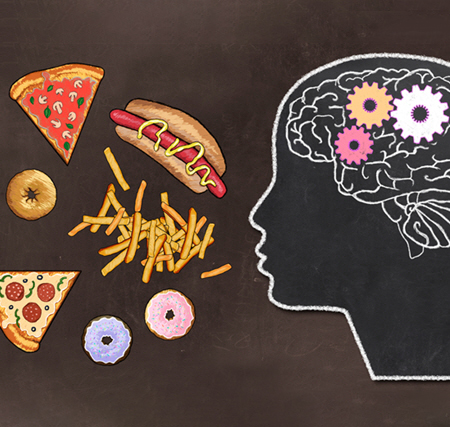 Finding excuses for binging.
Finding excuses for binging.
You’ve done it again.
You made cookies and ate the first batch before the kids got home from school. You don’t know why you can’t stop eating.
You make excuses and tell yourself you’re baking them for the kids. But let’s be honest – you’re the one who is craving something sweet.
It’s not about hunger.
You get so mad at yourself and feel disgusted – so fat and gross.
You snapped at your husband, and he didn’t even do anything.
It has gotten to the point where you can’t keep anything sweet in the house. You eat it whether you’re hungry or not. You can’t even remember the last time you felt truly hungry.
Hunger seems to have very little to do with your eating habits.
Discipline fails when it comes to sweets.
It’s strange because you’re so disciplined in other areas of your life.
You go to the gym every day whether you feel like it or not. You work hard at your job, and, for the most part, you eat a healthy diet.
But then you eat the chocolate-covered pretzels, or the M and M’s, or the ice cream – you can’t seem to control yourself around sweets.
Then the shame spiral starts, and you think, “Well, I’ve blown it – I may as well eat some more.”
You are so frustrated and cannot understand your own actions.
 Spreading negative waves.
Spreading negative waves.
To make matters worse, you noticed you’re passing along these negative ideas to your daughter.
She is in elementary school, and you heard her telling a friend the other day that she was fat and needed to go on a diet. That broke your heart.
You feel like such a failure and a fraud. You want to stop this madness.
Vicious cycle of on-again, off-again.
You’re ready to try something different.
You’re tired of losing weight only to gain it back again…
Your struggles with weight are deeper than any diet.
You have got to figure this out once and for all.
Get Stressed, Eat, Repeat.
Mindless, habitual eating plays a large part in establishing and perpetuating unhealthy eating habits.
You recognize that you eat for all kinds of reasons – stress, boredom, pleasure, loneliness…
But did you know that these triggers are part of a survival habit loop?
Why is this such a difficult habit to break?
Learn to step out of that habit loop.
The same powerful processes that helped keep us alive thousands of years ago are still at play today in our brains. The reward-based learning system that helped us remember where to find food before we had well-stocked cupboards and pantries is alive and well.
For many of us, our brains have created a relationship between food and many other triggers beyond hunger. I will teach you how addictive behavior is formed, and we will explore how to use mindfulness to target key areas in this process to change eating habits and step out of this habit loop.
 Our brains are hardwired for pleasure.
Our brains are hardwired for pleasure.
There has been exciting research conducted over the past several years around the impact of mindfulness on addiction.
The science behind food craving shows that every time we eat something sweet (or salty or crunchy – or some other comfort food), our brains produce a hit of dopamine. Dopamine is the same “feel good” chemical that drives other addictions like smoking, alcohol, cocaine, etc.
Our brains are wired for addiction because it is the same process that helped us remember where to find food back in the days when we had to forage instead of running to the kitchen, or Kroger, or the nearest McDonald’s drive-through window.
But we can hack into this process – this habit loop.
Change the wiring, reduce unhealthy eating.
Using mindfulness practices, we will work together to help you identify the difference between real hunger, emotional craving, and habitual eating.
You will learn to spot the triggers that drive the cravings. Developing mindful awareness skills will help give your brain new data points and ultimately break the chronic cycle of mindless eating.
As part of treatment, we will use an app for your daily homework assignments. This homework will reinforce the necessary skills and provide a framework for eliminating unhealthy habits and replacing them with new, healthier behaviors.
A typical session would go something like this… I’ll ask you to identify a recent experience where you engaged in mindless eating. What was going on before you headed to the kitchen or the pantry or wherever your food of choice was located? Was there a specific event that had triggered you to want to eat? Perhaps you were feeling stressed about something, or maybe you were bored, or perhaps you were looking for a distraction. We will work together to identify the events leading up to your mindless eating.
Next, we will explore what you experienced as a result of engaging in mindless eating. Was the experience as pleasant as you had hoped? Did the food taste as good as you’d remembered? And what about afterward? Did you feel satisfied, or did you feel disgusted with yourself? Ashamed? Angry? Defeated? What was the outcome of these behaviors?
We will explore these patterns and help you become an expert on your habitual eating so that you can manage it in real-time. I will teach you to connect to your habits in a new way, and you will learn practical skills to help manage cravings and urges. By developing mindfulness skills – paying attention to your cravings and allowing yourself to experience the discomfort (as opposed to trying to distract yourself), you create a shift in your experience that essentially provides new information to your brain.
Traditional diets rely on willpower to make changes in our eating habits. These changes tend to last only as long as our willpower lasts. And guess what? The part of our brain that controls our willpower – it gets tired, and when it does… poof, the willpower goes right out the window! This exhausted willpower is why people so often gain back the weight from traditional diets.
Let’s create healthy habits for a lifetime.
Let me help you develop positive eating habits and the emotional resilience to stick with them over time.
Lasting change is possible. I offer a free 20-minute phone consultation.
Call me at (601) 498-8263 to learn more, and let’s see if this program is a good fit for you.

